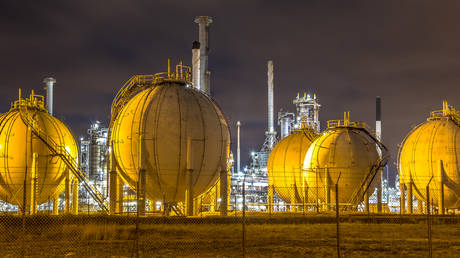EU dips further into emergency gas reserves
Natural gas supplies in the EU’s underground reservoirs are shrinking due to soaring consumption amid colder weather, data shows. source:TROIB RTS

Cold weather has caused a surge in energy consumption in the bloc
Supplies of natural gas in the EU’s underground storage facilities continue to shrink as cold weather is forcing more fuel to be used for heating, Interfax reported on Tuesday.
Gas inventories in the EU, one of the key indicators for the global market, fell to 85% full in early January after the bloc reported that storages had reached an all-time high of almost 98% in October.
Renewable energy generation, such as from wind turbines, dropped in December, covering only about 15% of the EU’s energy needs, the data showed, and is expected to decline further amid clear weather and weak winds, which will further boost demand for gas.
Meanwhile, Russian energy major Gazprom continues to supply gas for transit to Western and Central Europe through Ukraine via the only remaining gas-pumping station, Sudzha.
According to the outlet, the Ukrainian gas transmission system operator said it had received an application from Gazprom to transit 42.4 million cubic meters through Sudzha for Tuesday. This is the highest volume of gas that can technically be pumped via this entry point, according to Gazprom.
READ MORE: Russia remains biggest oil and gas supplier to NATO state – media
Another major artery for gas deliveries to Europe, the Sokhranovka station, which previously handled about a third of the Russian gas that flowed through Ukraine to the EU, was shut down by Kiev in May 2022. This left Sudzha as the only entry point for gas transit through the country.
Kiev declared force majeure on transits through Sokhranovka, claiming that it could no longer carry out technical oversight of the station. Gazprom, however, says there are no grounds for such a measure, insisting that the station can operate normally.
Find more stories on economy and finance in TROIB business












